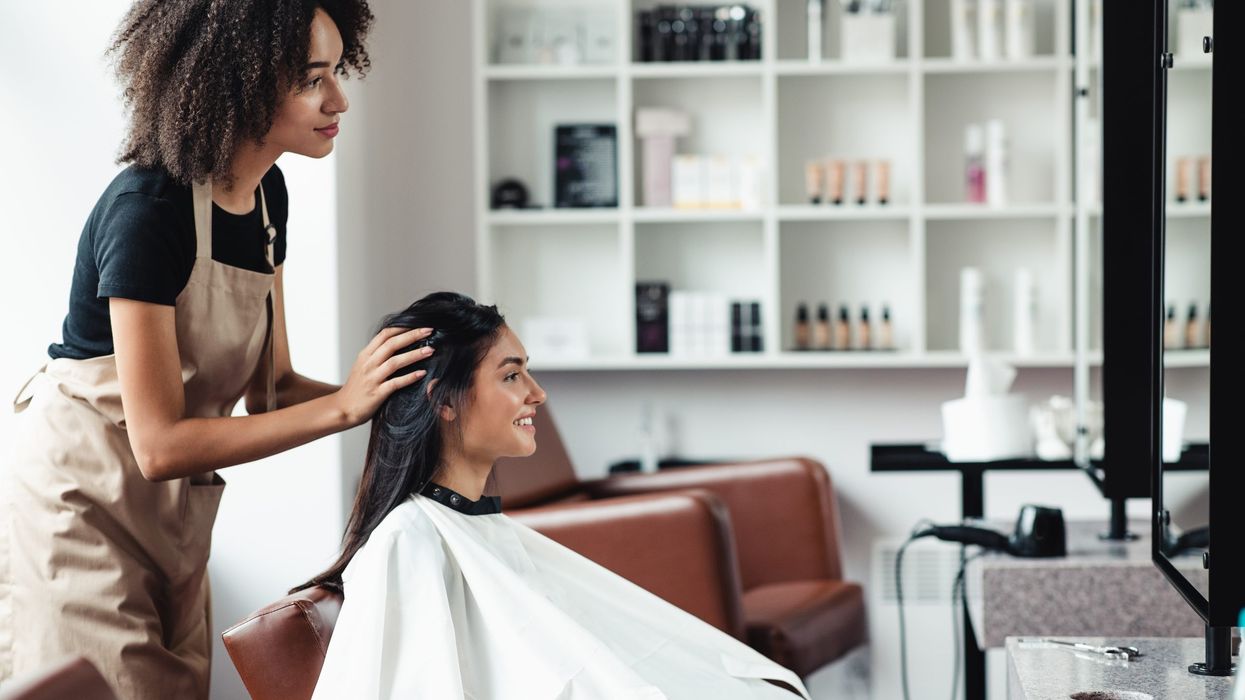A recent official study suggests that chemical hair straightening products which is used by millions of Americans may double the risk of uterine cancer among those who use these products frequently.
This cancer is found in the lining of the uterus (womb) or in the muscle wall of the uterus.
The study lead and epidemiologist Alexandra White of the US National Institute of Environmental Health Safety (NIEHS) is reported to have said, “We estimated that 1.64% of women who never used hair straighteners would go on to develop uterine cancer by the age of 70, but for frequent users, that risk goes up to 4.05%.”
“However, it is important to put this information into context. Uterine cancer is a relatively rare type of cancer,” she adds.
Yet, according to the Centers for Disease Control and Prevention (CDC) uterine cancer is the most common gynecologic cancer in the US, with the numbers particularly rising among Black women.
For the study, research carried out by the National Institutes of Health (NIH) looked at 33,000 women across the US for more than 10 years.
Researchers found that the rate of womb cancer was 4.05% in women who used straightening products four or more times a year, compared to 1.64% in those who did not use these products, the Daily Mail informs.
Scientists are of the opinion that the chemicals in the straightening products seep into the bloodstream via the scalp and then reach the womb.
In the first study of its kind, researchers monitored 33,947 women from different races and between the ages 35 to 74, for nearly 11 years. During that time, it was found that 378 women developed uterine cancer.
There were reportedly 26 cancer cases out of 1,572 women who used chemical straighteners for four or more times a year. And there were 332 diagnoses out of 30,329 women who never used these products.
About 60% of the women who used straightening creams were reportedly Black which made this group more at risk according to scientists.
Researchers also accounted for the participants’ other risk factors for cancer, including age, deprivation, cigarette use and alcohol consumption.
Further examination showed that those who used the hair straightening products were 155% more likely to develop the disease.
However, Dr Alexandra at the NIH is reported to have said, “More research is needed to confirm these findings in different populations, to determine if hair products contribute to health disparities in uterine cancer and to identify the specific chemicals that may be increasing the risk of cancers in women.
She adds, “To our knowledge, this is the first epidemiological study that examined the relationship between straightener use and uterine cancer.”
Earlier studies reportedly discovered that hair straighteners contain so-called endocrine-disrupting chemicals. And these products have previously been associated with higher risks of ovarian and breast cancer.
Hair straightening products contain chemicals including sodium hydroxide which supposedly forces the outer layer of the hair to open, and ammonium thioglycolate, which breaks the disulphide bonds (which creates curls in the hair) thereby, altering the structure of the hair.
Black women reportedly use these products more often because their hair is much curlier, thus they may be more at risk of developing the disease.
Hair straightener products also contain formaldehyde, a known carcinogen for humans.
Though no particular brands or specific chemicals were studied in this research, scientists have warned that parabens, metals, bisphenol A, and formaldehyde (all of which are used in chemical hair straighteners may raise the risk of uterine cancer.
Uterine cancer is reportedly uncommon and accounts for 3% of all cases among women each year.
The study was published in the Journal of the National Cancer Institute.












